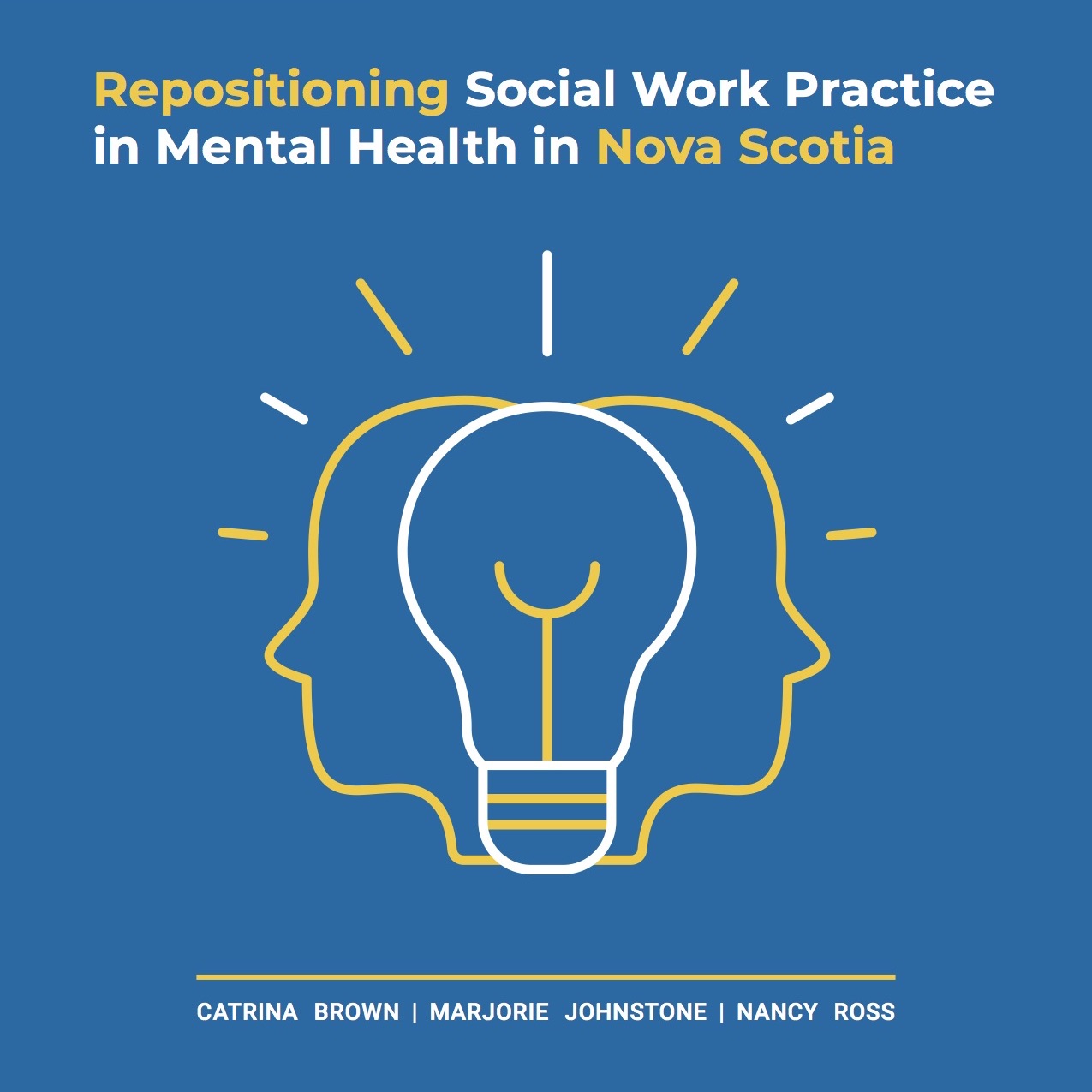
FOR IMMEDIATE RELEASE
January 13, 2021
KJIPUKTUK (HALIFAX, NS)– The Nova Scotia College of Social Workers (NSCSW) has launched a new report on the state of mental health and addiction services in Nova Scotia. The report, Repositioning Social Work Practice in Mental Health in Nova Scotia, demonstrates that the current delivery of mental health and addictions care in Nova Scotia is falling short of the province’s intended goals. Significant change in the grounding principles of these systems is needed.
Principal researcher Dr. Catrina Brown from the Dalhousie School of Social Work says, “This extensive consultation with social work service users, providers and supervisors produced overwhelmingly consistent results from the research literature to the consultations, which all strongly indicated that the current delivery of mental health services does not serve the public well.”
The report reveals that current delivery of mental health and addiction services focuses on fiscal constraints and short-term work. There is little space for prevention, advocacy, community involvement, the development of resources, or for addressing diversity and equity needs, trauma, historical trauma, and poverty.
“Overall, we need a comprehensively designed and fully integrated mental health, addiction and trauma-based service, which addresses issues of social justice, equity and community needs —and before mental health issues reach debilitating levels of concerns,” comments Dr. Brown.
Jim Morton, chair of the NSCSW social justice committee and former manager within the Mental Health and Addiction program agrees.“Social workers are worried and angry that standardized treatments and managerial efficiency are given more importance than the unique needs of clients and their families who approach mental health and addiction services,” Morton says.
Alec Stratford, executive director and registrar of the NSCSW, states, “The COVID-19 pandemic has shaken our society. More people in this province have reported higher rates of anxiety levels than anywhere else in Canada, as well as increasing levels of depression since the pandemic. Now more than ever, Nova Scotians require a public mental health system that meets their needs.”
The NSCSW calls on the provincial government to adopt the recommendations of the paper, and to reposition the profession of social work within their services to ensure that a critical clinical lens and family- and client-centred practice are at the forefront of service delivery.
-30-
About us:
The Nova Scotia College of Social Workers serves and protects Nova Scotians by effectively regulating the profession of social work. We work in solidarity with Nova Scotians to advocate for policies that improve social conditions, challenge injustice and value diversity.
For more information or to arrange interviews, contact: Rebecca Faria, communication coordinator for NSCSW (902-429-7799 ext. 227, [email protected]).






This is an essential piece of research that captures existing awareness of the MH & Addictions shortfalls of service delivery. It is a grand base to reference as we move forward in collaboration with community partners and make the suggested reccommendations a reality for Nova Scotians.
Will the College be posting a video of the Launch online from NSCSW website?
I am pleased to see the author’s work on the topic of mental health support for Nova Scotians because I believe society is realizing that we have much to learn about mental health. We appear to me to make much greater advances on treating physical maladies and yet are really at the early stages of learning how to support people’s mental health. Thank you for the effort.
As a proud volunteer at a local mental health clinic I see several large teams of skilled professionals devoting tens of thousands of person-hours every year to mental health support though it seems from your report description your focus is very much on the role of the “social worker” in supporting mental health. It also appears that though much consultation was done as a basis for your study none of it was with existing mental health professionals which seems like a serious omission to me. Perhaps your intent is to improve the skills of “social workers” to support the existing skilled mental health support teams through better training of the “social workers” ? Perhaps you did consult with some of the hundreds of existing mental health professionals in Nova Scotia and I missed that in your reporting?
The teams that I volunteer with in Kentville’s main mental health support facility and as dedicated and skilled professionals as I have ever had the pleasure to work with. I do hope that you have benefitted from the input of them and many of their equally competent peers throughout the province in preparing your recommendations. Thank you again for your efforts on a topic important to me.
Hi Patricia! Yes, the video was added to our Facebook account and can be watched there, even by folks who don’t have a Facebook account. Here’s the link: facebook.com/114157965269659/videos/421311525748196
Hello Doug. The researchers specifically interviewed social workers employed in the mental health system, their supervisors, and people who have used mental health services. The scope of social work practice is quite broad, and many social workers in Nova Scotia are mental health professionals with specialized clinical skills and education. One of the forewords of the report is actually written by the chair of our Social Justice Committee, a retired social worker who used to be a manager within the mental health and addictions program in Kentville; we have appreciated being able to benefit from his experience and perspective during this project.